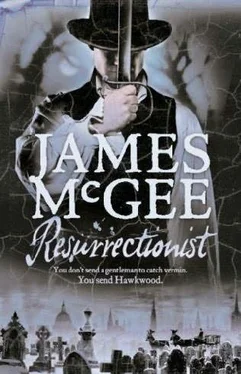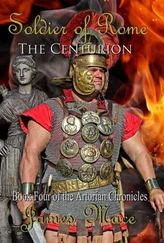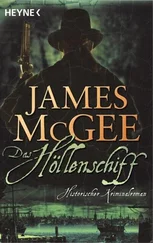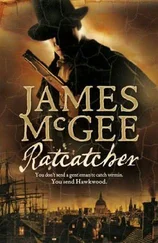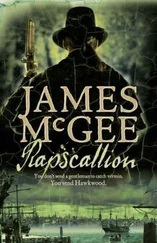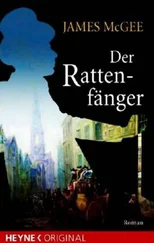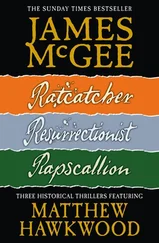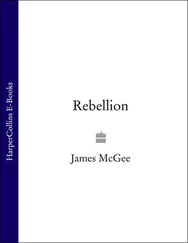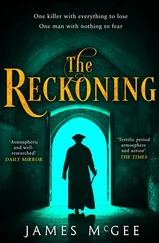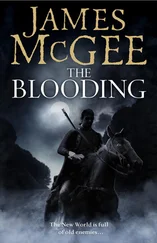James McGee - Resurrectionist
Здесь есть возможность читать онлайн «James McGee - Resurrectionist» — ознакомительный отрывок электронной книги совершенно бесплатно, а после прочтения отрывка купить полную версию. В некоторых случаях можно слушать аудио, скачать через торрент в формате fb2 и присутствует краткое содержание. Жанр: Исторический детектив, на английском языке. Описание произведения, (предисловие) а так же отзывы посетителей доступны на портале библиотеки ЛибКат.
- Название:Resurrectionist
- Автор:
- Жанр:
- Год:неизвестен
- ISBN:нет данных
- Рейтинг книги:4 / 5. Голосов: 1
-
Избранное:Добавить в избранное
- Отзывы:
-
Ваша оценка:
- 80
- 1
- 2
- 3
- 4
- 5
Resurrectionist: краткое содержание, описание и аннотация
Предлагаем к чтению аннотацию, описание, краткое содержание или предисловие (зависит от того, что написал сам автор книги «Resurrectionist»). Если вы не нашли необходимую информацию о книге — напишите в комментариях, мы постараемся отыскать её.
Resurrectionist — читать онлайн ознакомительный отрывок
Ниже представлен текст книги, разбитый по страницам. Система сохранения места последней прочитанной страницы, позволяет с удобством читать онлайн бесплатно книгу «Resurrectionist», без необходимости каждый раз заново искать на чём Вы остановились. Поставьте закладку, и сможете в любой момент перейти на страницу, на которой закончили чтение.
Интервал:
Закладка:
He heard footsteps behind him and saw that Hopkins had also begun to explore. At the bottom of the steps they’d had the advantage of daylight slanting through the open trap, but the further they moved away from the point of entry, the darker their surroundings became. The lanterns only served to illuminate a few yards on either side of them. Nevertheless, they cast enough of a glow to reveal that Hawkwood and the constable were not the only ones down there.
Hawkwood had spotted several rats out of the corner of his eye, their sleek fur rippling in the candlelight as they scampered for cover. He’d felt more than one brush past his feet. Judging from the expletives voiced by Hopkins, the constable had felt them too.
But he could not see any evidence of recent human occupation.
He heard a faint skittering sound close to the ground and felt the contact of tiny claws running across the toe of his boot. Instinctively, he kicked out and heard the high-pitched squeal as his foot made contact, accompanied by the brittle sound of glass striking stone.
He looked down. There was no sign of the rat. The rodent had survived to fight another day. What the lantern glow did pick up was a reflection. He squatted down, thinking it might have been a trick of the eye, but then he saw it, lying on its side at the base of one of the stone coffins: a long-necked bottle, lying on its side. A little further back in the alcove he saw a tin plate and a cup. He picked up the bottle and brought it closer to the lantern. It was corked and there was liquid inside it. Hawkwood put the lantern down and levered the cork from the bottle. Pouring a small measure of the contents into the mug, he took a sniff, then a tentative sip. Wine; still drinkable.
He straightened as he heard Hopkins emit a sharp intake of breath.
The constable was standing a few yards away with his back to him. He was motionless, staring at something ahead of them. Hawkwood put the mug and bottle down, picked up the lantern, and walked forward cautiously.
’ Ceptin’ a few bones, the sexton had told them.
Only there weren’t a few. There were hundreds of them, perhaps thousands, rising out of the earthen floor; a wall of bones, as wide as a door and piled as high as a tall man, extending down the centre of the chamber as far as the light could reach, like the fortifications of some ancient underground citadel. There were more bones in the side alcoves. Every available space, recess and shelf was crammed with them. Skulls, large and small, so many that from a distance they would have looked like pebbles on a beach, the empty, eyeless sockets and hollow nasal cavities black with shadow in the lantern glow. And alongside them, thighbones, stacked from floor to roof, like stored winter logs.
The constable was rooted to the spot, as if he couldn’t quite take in what he was seeing. Hawkwood moved past him. As he grew closer to the bone piles, he realized their sheer volume was reflecting the light, extending the radius of illumination. The chamber was more than a crypt. It was a charnel house.
The place must have been in use for centuries, Hawkwood realized. As the burial ground became clogged, the older remains would have been relocated by generations of gravediggers, transferring the bones direct via the tunnel from graveyard to crypt without the need to carry them through the church. The skulls and thighbones were the most prominent because superstition dictated they were necessary for the Resurrection. He looked to his right. The constable’s hand was twitching.
“They’re only bones,” Hawkwood said. “They won’t bite.”
“There was a charnel house beneath my father’s church,” the constable said hoarsely. “There were men working. One day the floor gave way and two of them fell through. They landed on a pile of skulls. It collapsed on top of them. They were down there in the darkness for hours. It was said that by the time they’d got them out, they’d both lost their minds. They wouldn’t stop screaming.” The constable’s voice faded away.
No wonder Hopkins had shown reluctance to accompany him, Hawkwood thought.
They moved on, following the bone wall. Occasionally there would be a crunch underfoot as a boot heel bore down on a stray shard of skull. The crypt was a lot bigger than Hawkwood had expected.
He estimated they had travelled about sixty or seventy paces from the entrance when the bone wall came to an abrupt end. He saw that the section of crypt that lay ahead had begun to narrow. There was a muttered oath from Hopkins as the top of his cap grazed the chamber roof. Hawkwood suspected they were probably about to enter the tunnel leading to the burial ground entrance. Both men were forced to lower their heads. Their shadows formed strange humpbacked silhouettes on the walls as the earth pressed in around them. Transporting the bones of the dead down the tunnel and into the charnel house must have been like working in a mine. But at least those involved in the grim work would have had some light to guide them. A series of eye-level niches had been hacked into the walls on either side of the shaft. Set into the base of each one was a short stub of unlit candle.
Hawkwood was reminded of the shafts he’d seen during his army days, dug by engineers to undermine enemy ramparts by means of well-placed explosive charges, where the men doing the excavating had been forced to crawl on hands and knees. Sometimes mistakes were made and charges had been detonated before all the sappers had made their withdrawal, burying the men alive. It had been a terrible way to die.
The tunnel floor began to slope upwards. A break appeared in the floor ahead. Hawkwood could see the base of another set of stone steps, rising towards a closed wooden door. They moved in that direction.
Hawkwood went first. The door was unsecured and opened outwards and he found himself emerging into the dark confines of the dead house. The relief at being able to stand upright once more was almost intoxicating. The lantern glow revealed a square, windowless storage space containing six wooden trestles. Four of them held cheap coffins, all with lids closed. There was a smell to the place that he couldn’t identify, like sickly, sweet incense. He suspected that at least one of the coffins held a body that had started to putrefy. With the vicar dead, he wondered how long it would be before the bodies were consigned to the ground. And what would the smell be like then? He crossed the room quickly, inserted the key in the lock of the outer door, and hauled it open.
Inhaling the cold fresh air, Hawkwood felt a surge of excitement. The cup and plate and the half-finished bottle of wine were an indication that the crypt had been visited recently, although there was no proof they’d been placed there by Hyde. Still, it was a possibility, and it meant he at least had something to take back to the Chief Magistrate other than the dried mud and rat shit on his boots and the streaks of ash on his face and cuffs. But was it enough to convince James Read that the colonel might still be alive?
He heard a sigh of relief as Hopkins emerged into the room behind him. Followed by an exhalation of air as the constable’s nose picked up the smell from the dead house’s other occupants.
Hawkwood turned. As he did so, the corner of the nearest coffin lid, trapped by the light spilling through the open doorway, caught his eye. The lid was not lying flush, he saw, as if it hadn’t been fastened down securely. He could also see there was something poking out between the coffin and the lid. Curious, Hawkwood moved closer. It looked like material of some kind. Lining perhaps, although the coffin didn’t look to be of good enough quality to warrant a lining. Hawkwood reached out and rubbed the dark cloth between his fingers. It felt too coarse for a lining. It felt more like…
Читать дальшеИнтервал:
Закладка:
Похожие книги на «Resurrectionist»
Представляем Вашему вниманию похожие книги на «Resurrectionist» списком для выбора. Мы отобрали схожую по названию и смыслу литературу в надежде предоставить читателям больше вариантов отыскать новые, интересные, ещё непрочитанные произведения.
Обсуждение, отзывы о книге «Resurrectionist» и просто собственные мнения читателей. Оставьте ваши комментарии, напишите, что Вы думаете о произведении, его смысле или главных героях. Укажите что конкретно понравилось, а что нет, и почему Вы так считаете.
